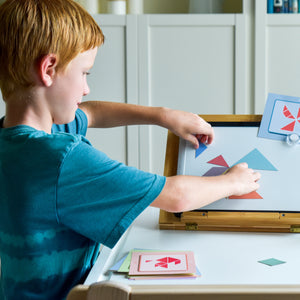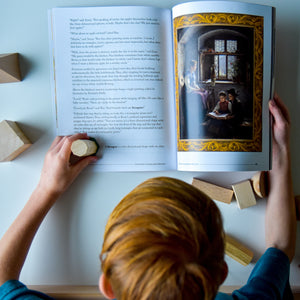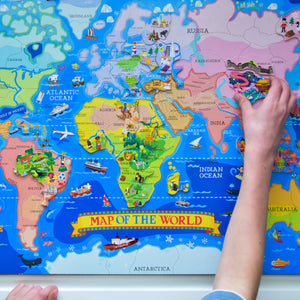Beyond Reading, Writing, and Math: Essential Skills Our Children Need to Know

“Our sons and daughters don’t have to wait to begin developing skills in home and money management—they can begin now.”
Our little chicks are growing up and, in most cases, will eventually fly the coop. Whether our children leave home to pursue higher education, serve a mission, enter the workforce, or begin a family, one day they’ll be off on their own. Every parent wonders, Will they be full fledged and have what it takes to fend for themselves? Will they be equipped with the essential skills they’ll need to manage their adult lives effectively?
While life skills can certainly be taught in a formal academic setting, they should also be taught in the home. Ronald L. Knighton, the managing director for the Curriculum Department of The Church of Jesus Christ of Latter-day Saints, said:
“As good as outside teachers may be, everything they do is still supplementary to the teaching that occurs in the home. We make a mistake when we underestimate the importance of daily examples and experiences provided by family life.”1
A college class can certainly help a young adult learn valuable principles and practices, but it is no substitute for a lifetime of hands-on experience. It’s no wonder we’re exhorted to “train up a child in the way he should go: and when he is old, he will not depart from it.”2 If we incorporate life-skills learning into our children’s home education when they are young, our children will develop useful abilities and good habits that will bless them and others for the rest of their lives. Furthermore, training children in the practicalities of life will facilitate a smoother transition into adulthood because our children will be better prepared to cope on their own.
Fortunately, teaching our children life skills doesn’t have to be complicated. Teaching opportunities will organically present themselves, especially if we invite and encourage age-appropriate participation in day-to-day family affairs. Our sons and daughters don’t have to wait to begin developing skills in home and money management—they can begin now.
Home Management
A lot goes into managing a home well, but cleaning, laundry, and meal preparation are probably the top three because they’re essential for general daily function.
Cleaning skills naturally develop as children are asked to tidy up their toys or make their beds. In the earlier stages of their development, we work alongside our children. But with time and practice (and a lot of patience on our part), their capacity will gradually increase, and sooner or later, they will be capable of adequately clearing the table, washing the dishes, vacuuming, cleaning a bathroom, etc., completely unaided.
Even small children can begin learning how to do laundry by helping to sort clothing into piles of darks and lights. As they grow older, they’ll be able to add the detergent, transfer clothes from the washer to the dryer, and help put clean laundry away all by themselves.
Learning good meal preparation is probably the most important domestic skill our children need to know so that they can be healthy. It can also help them to save a lot of money. Now, they don’t need to become gourmet chefs, but they should at least have a good grasp of the fundamentals, like nutrition, sanitary cooking practices, grocery shopping, etc., in addition to being able to prepare a few basic wholesome meals.
Like all the skills already mentioned, meal preparation can also be taught by including our children in the process. They can help us make a menu, accompany us to the grocery store from time to time, and of course, cook. While we perform these tasks together, we can have meaningful conversations about balanced nutrition, how to read food labels, and how to get the best food value for our money.
There are many effective systems, strategies, and methods for organizing the whole family to work together to achieve a clean, healthy, and comfortable living space. What may work for one family, however, might not work for another, so it’s important we tailor our approach to suit our individual families. Also, what may work for our families right now might not work at some point in the future, so it’s important to be flexible and adapt when necessary.
Money Management
From birthdays to babysitting, children come by money in a myriad of ways. Each time our children receive money, whether it was gifted or earned, we can help them learn to manage it wisely. We can talk to them about tithing, charitable offerings, savings, needs, wants, and product value so they can determine how to make the most of their money. We can expand our discussions to include budgeting, expenses, bills, and debt as they get older. Eventually, we can even help them to create a personal budget, open their own bank account, and show them how to balance a checkbook, pay bills, use a debit card and checks, build credit, and file a tax return.
Children can also learn to manage money as we allow them to participate in some discussions and decisions regarding family finances. Here are several example scenarios that could become great learning opportunities:
- What’s the best use of our tax return?
- What sacrifices should we make as a family so we can get out of debt?
- Should we provide the children with opportunities to earn money in the home?
- What can we do to save money so we can go on a family vacation next year?
- What sort of donation could we make to help those who have been impacted by the latest natural disaster?
As with home management skills, there are many effective ways to apply sound money management skills. Some children will prefer to write down income and expenses using paper and pencil and separating their money into envelopes or jars. Others will prefer to use the latest money management apps. We can help our children find a way that will work best for them at their age and ability.
As you can see, teaching our children life skills really doesn’t need to be complicated. We can start young and very simply. However, if we have older children who don’t have many life skills under their belts yet, it’s not too late for them to start acquiring some. There’s a Chinese proverb that says, “The best time to plant a tree was twenty years ago. The next best time is now.” So it is with learning or honing life skills—now is a great time to start.
Giving our children opportunities to learn skills that will help them to independently manage their lives is empowering and can help to reduce some anxiety for them and us when they leave home and begin living on their own. Gaining and using life skills is an essential part of a well-rounded education. The mastery of such skills can also be fulfilling because it enables boys and girls to become mature, self-reliant adults who can transform any living space into a highly functioning home.

____________________________________________
1Ronald L. Knighton, “Becoming Our Children’s Greatest Teachers,” Ensign, September 1999.
2Proverbs 22:6; italics added.
- The Mindful Heart







